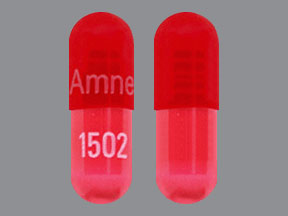
Phenoxybenzamine Coupons & Savings Card – Discount Prices from $960.08
Generic for: Dibenzyline
Phenoxybenzamine, known by the brand name Dibenzyline, is prescribed for managing high blood pressure and excessive sweating in adults with a type of adrenal gland tumor called pheochromocytoma. It is an alpha blocker that functions by relaxing and widening blood vessels, which allows blood to flow more easily and helps lower blood pressure. This also reduces sweating associated with pheochromocytoma. Typically, it is taken orally 2 to 4 times a day, but it is not intended for long-term use. Common side effects include low blood pressure when standing, fast heart rate, and nasal congestion. Phenoxybenzamine is available both as a brand-name and a more affordable generic option. Always consult your healthcare provider before starting any new medication.
Our coupons are free to use. Before paying, show the pharmacist your Phenoxybenzamine savings card to get your free discount. Use our filters below to edit the prescription box to match your needs. The Phenoxybenzamine prices will update based on your prescription needs. Above our Phenoxybenzamine coupons, you can change your location to see pharmacy prices and costs in other areas. We're here to help you buy Phenoxybenzamine at the lowest price with our prescription discount card.
My prescription
Edit
10MG, Phenoxybenzamine (100 Capsules)
Select pharmacy

CVS
$960.08
COUPON PRICE
Walgreens
$2216.00
COUPON PRICE
Albertsons
$2337.51
COUPON PRICE
Walmart
$10364.55
COUPON PRICEPhenoxybenzamine savings card
Show this card to your pharmacist
CVS
$960.08
BIN
ID
PCN
GRP
019876
LH6DBF0283
CHIPPO
LHX
Powered by
Phenoxybenzamine, known by the brand name Dibenzyline, is prescribed for managing high blood pressure and excessive sweating in adults with a type of adrenal gland tumor called pheochromocytoma. It is an alpha blocker that functions by relaxing and widening blood vessels, which allows blood to flow more easily and helps lower blood pressure. This also reduces sweating associated with pheochromocytoma. Typically, it is taken orally 2 to 4 times a day, but it is not intended for long-term use. Common side effects include low blood pressure when standing, fast heart rate, and nasal congestion. Phenoxybenzamine is available both as a brand-name and a more affordable generic option. Always consult your healthcare provider before starting any new medication.
Our coupons are free to use. Before paying, show the pharmacist your Phenoxybenzamine savings card to get your free discount. Use our filters below to edit the prescription box to match your needs. The Phenoxybenzamine prices will update based on your prescription needs. Above our Phenoxybenzamine coupons, you can change your location to see pharmacy prices and costs in other areas. We're here to help you buy Phenoxybenzamine at the lowest price with our prescription discount card.
More prescriptions for hypertension
coupons from$226.89Save 72%
coupons from$222.10Save 92%
coupons from$7.02Save 91%
coupons from$18.60Save 74%
coupons from$66.15Save 38%
coupons from$15.56Save 75%
coupons from$20.94Save 91%
coupons from$54.77Save 48%
More prescriptions for hypertension
Coreg Cr Save 72%coupons from $226.89
Nicardipine Save 92%coupons from $222.10
Quinapril Save 91%coupons from $7.02
Spironolactone Save 74%coupons from $18.60
Acebutolol Save 38%coupons from $66.15
Benazepril Save 75%coupons from $15.56
Enalapril Save 91%coupons from $20.94
Amiloride-hydrochlorothiazide Save 48%coupons from $54.77
Phenoxybenzamine dosage forms
Use our Phenoxybenzamine 10MG coupon with prices from $960.08 for 100 Capsules.
Dosage Quantity Price from Per unit 10MG 100 Capsules $960.08 $9.60
| Dosage | Quantity | Price from | Per unit |
|---|---|---|---|
| 10MG | 100 Capsules | $960.08 | $9.60 |
